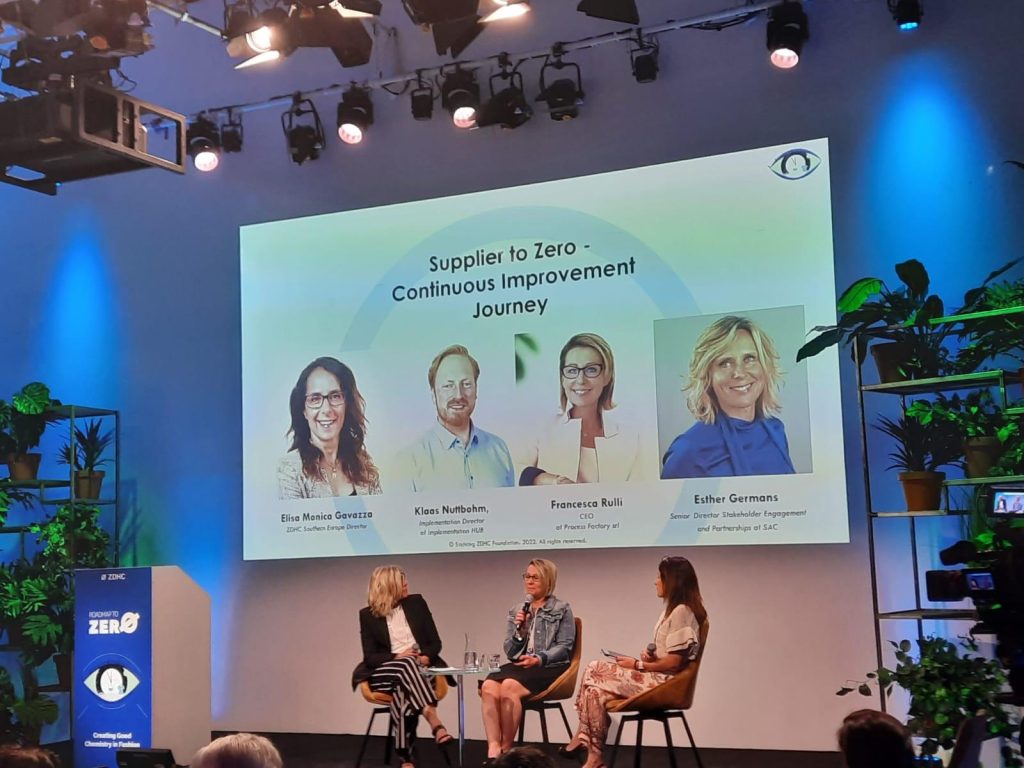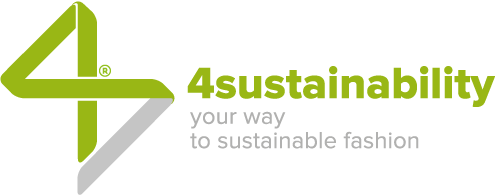Francesca Rulli announces in Amsterdam the complete alignment of 4sustainability with the ZDHC Supplier To Zero Program and the launch of the 4s CHEM + Platform as ZDHC Accredited Solution for the Incheck generation*.
Creating good chemistry is the theme of the ZDHC Impact Day, which took place on Thursday 16 June in Amsterdam to involve fashion & luxury stakeholders on possible ways to maximize the implementation of production systems with sustainable chemistry.
Contributing to the ZDHC Foundation’s activities has always been a great source of pride. This year we also had the pleasure of meeting again in person after so much (too much…) digital technology. As Process Factory, we’ve shared the approach to the Implementation for Purpose since 2014, when we started as first accredited training providers. The 4s CHEM Protocol. which also dates back to 2014, has always been aligned with the ZDHC methodology to support brands and supply chains in the development of the ZDHC Roadmap To Zero.
During the Impact Day, ZDHC Southern Europe Director Elisa Gavazza interviewed Francesca Rulli, presenting 4sustainability as a perfect example of total alignment and methodological integration. The fashion & luxury supply chain needs univocal requests, supported by methods and therefore capable of generating verified data. Which is among the common denominators of both the ZDHC approach and the 4sustainability framework.

With 4sustainability you’ve been following many companies in the supply chain for years: would you like to tell us about the experience of your implementation model and the alignment with ZDHC?
To date, about 200 companies in the Italian supply chain have started the 4s CHEM implementation, in turn involving over 3500 subcontractors around the world.
It all begins with creating the right culture and knowledge. The Chemical Manager, in particular, is a key role for the correct implementation of chemical management systems with reference to both internal production cycles and the processes carried out by suppliers.
4s CHEM is the implementation protocol that allows to ensure compliance with the ZDHC methodology requirements in a logic of continuous improvement, which means to achieve increasingly sustainable chemical performances. This is why the companies that have long adopted the 4s CHEM protocol are now ready to compete also with the Supplier To Zero Program!
By implementing the framework on many different companies int the supply chain – from fabric manufacturers to yarn manufacturers, from leather to accessories up to companies that carry out wet processes – we were able to concretely verify how it is possible to improve output performance by acting on processes and on the input risk management. The proof comes from the supporting data: the waste water is cleaned and the finished product as well!
The Supplier To Zero Program provides for the chemical inventory verification. What news do you have as a Solution Provider?
In order to perfect the alignment and integration with respect to input management, only one piece was missing. Today we have also fixed this point: by becoming Accredited Solution Provider with the 4s CHEM+ we also have the possibility of enabling suppliers to generate Incheck Report! Which means, in short, that we can follow companies throughout their implementation process – from training to the Supplier To Zero Programme – to help them constantly improve performance and communicate them to the market!
In such a fragmented supply chain, how do you think chemical management can be best implemented?
From the beginning, we have considered the upstream implementation to be essential. In very fragmented supply chains where outsourcing is the rule, in fact, cleaning the production cycles of toxic and harmful chemicals means intervening on multiple tiers. Consistently, the 4sustainability framework provides for the supplier engagement as mandatory, that is, the condition of implementing the system in turn: every company that adopts 4sustainability measures the chemical inventory in volume also of its subcontractors.
To follow these activities, the role of the chemical manager is fundamental. The responsibility of spreading the skills internally, to the process suppliers up to to the raw material suppliers lies with the chemical manager. This is why we have experimented with various ways to support collaboration and the supply chain engagement. Thanks to their continuous application, we are registering growing interest and involvement

